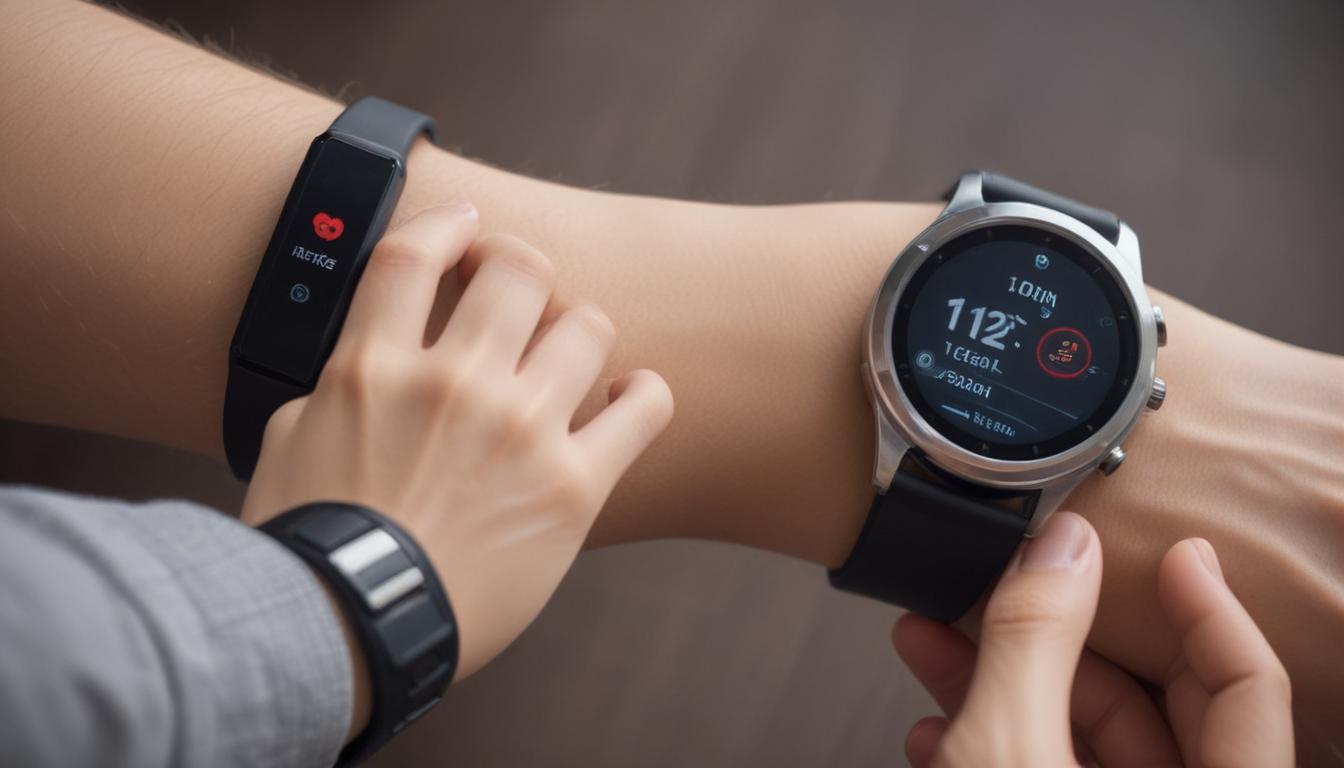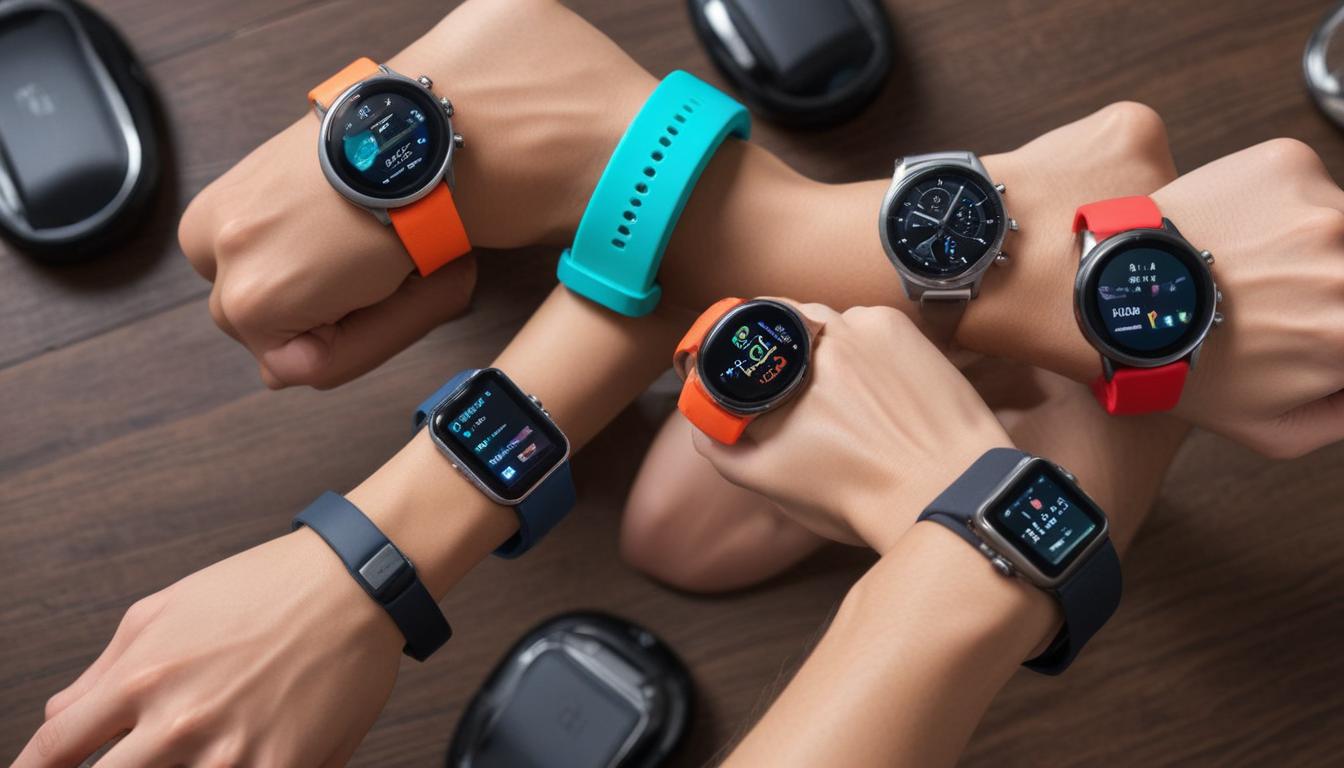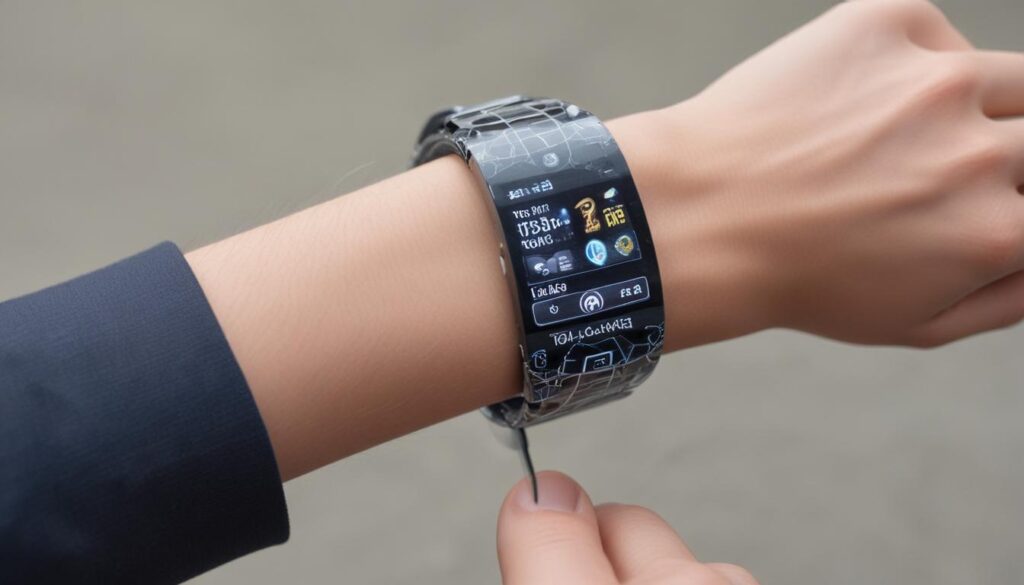Now Reading: Wearable Tech Your Simple Guide
- 01
Wearable Tech Your Simple Guide
Wearable Tech Your Simple Guide

Wearable Technology From Fitness Trackers to Smartwatches
Are you drowning in a sea of tech gadgets? You see them everywhere—on wrists at the gym, in the office, and at the coffee shop. You hear terms like step counts, sleep scores, and ECG on your wrist, but the options are overwhelming. Should you get a simple band or a full-blown mini-computer on your arm? It’s easy to feel lost and wonder if you even need one.
You are in the right place. This guide is designed to cut through the noise. We will break down the two biggest players in the wearable world, fitness trackers and smartwatches, so you can understand exactly what they do, who they are for, and which one is the perfect fit for your lifestyle and goals.
What Exactly Is Wearable Technology
At its core, wearable technology is any smart electronic device that you can wear as an accessory. These gadgets are designed to collect data about you and the world around you, and in many cases, connect to the internet or your smartphone. While we often think of wrist-worn devices, wearables can also include smart rings, smart glasses, and even smart clothing.
The idea is not new, but modern technology has supercharged its capabilities. Today’s wearables have gone far beyond simple step counting to become powerful tools for health, communication, and productivity.
The Rise of the Fitness Tracker
Fitness trackers were the devices that truly brought wearable tech into the mainstream. They offered a simple promise to help you move more and understand your body better.
What Do Fitness Trackers Do
These devices are hyper-focused on health and wellness metrics. Their primary job is to monitor your physical activity and biological data. Core functions usually include
- Step Counting Tracking your daily movement.
- Heart Rate Monitoring Keeping an eye on your heart rate during rest and exercise.
- Sleep Tracking Analyzing the quality and duration of your sleep cycles.
- Calorie Burn Estimation Calculating your energy expenditure throughout the day.
- Activity Tracking Automatically detecting workouts like running, swimming, or cycling.
Who Are Fitness Trackers For
A fitness tracker is an excellent choice for anyone whose main priority is health and activity monitoring without all the extra bells and whistles. You might be the perfect candidate if you are
- Just starting your fitness journey and want motivation.
- Focused on specific health goals like improving sleep or increasing daily steps.
- Looking for a device with a long battery life that you can wear for days without charging.
- On a budget and want a straightforward, effective health tool.

The Evolution into the Smartwatch
If a fitness tracker is a specialist, a smartwatch is a generalist. It takes all the health-tracking capabilities of a fitness tracker and combines them with the functionality of a smartphone, creating a powerful hub right on your wrist.
More Than Just Time and Steps
A smartwatch is designed to be an extension of your phone. While it excels at fitness tracking, its true power lies in its connectivity and app ecosystem. Advanced features often include
- Notifications Receiving texts, calls, emails, and app alerts.
- App Integration Using apps for navigation, music, weather, and more.
- Mobile Payments Paying for items with a tap of your wrist.
- Cellular Connectivity Making calls and streaming music without your phone nearby (on select models).
- Advanced Health Sensors Performing an ECG, measuring blood oxygen levels, and even temperature sensing.
Who Should Choose a Smartwatch
A smartwatch is ideal for the user who wants seamless connectivity and maximum functionality. This might be the right device for you if you are
- A busy professional who needs to stay on top of notifications without constantly checking your phone.
- A tech enthusiast who loves having the latest apps and features.
- Someone who wants the convenience of a phone on their wrist for payments, music, and calls.
- Managing specific health conditions that benefit from advanced sensors like ECG or SpO2.
Fitness Tracker vs Smartwatch A Head to Head Comparison
Let’s put them side by side to make the choice crystal clear.
Core Functionality
A fitness tracker is a health device first. Its purpose is to track, motivate, and provide data about your physical well-being. A smartwatch is a communication and productivity device that also has excellent health-tracking features.
Battery Life
This is a major difference. Because they have simpler displays and fewer background processes, fitness trackers often boast a battery life of 5 to 10 days, with some lasting even longer. Smartwatches, with their vibrant screens and constant connectivity, typically require charging every 1 to 3 days.
Price Point
Generally, fitness trackers are the more budget-friendly option. They offer incredible value for their focused feature set. Smartwatches are a bigger investment, with prices often comparable to a mid-range smartphone, especially for models with cellular capabilities.
The Future of Wearable Tech What Is Next
The world of wearables is constantly innovating. We are already seeing the rise of smart rings that offer discreet health tracking and smart clothing with integrated sensors. In the near future, look for even more advanced, non-invasive health monitoring, like blood pressure and glucose tracking, to become standard features, turning these gadgets into indispensable personal health companions.
Making Your Choice How to Pick the Right Wearable for You
The best wearable is the one that fits your life. There is no single “right” answer—only the right answer for you. Before you buy, ask yourself a few key questions
- What is my main reason for wanting a wearable? Is it for fitness motivation or for staying connected?
- How much do I want to spend?
- How important is long battery life to me?
- Do I want a simple band or a device with a large screen and apps?
Whether you choose a dedicated fitness tracker to crush your health goals or a feature-packed smartwatch to streamline your day, you are investing in a piece of technology designed to make your life just a little bit better.


































